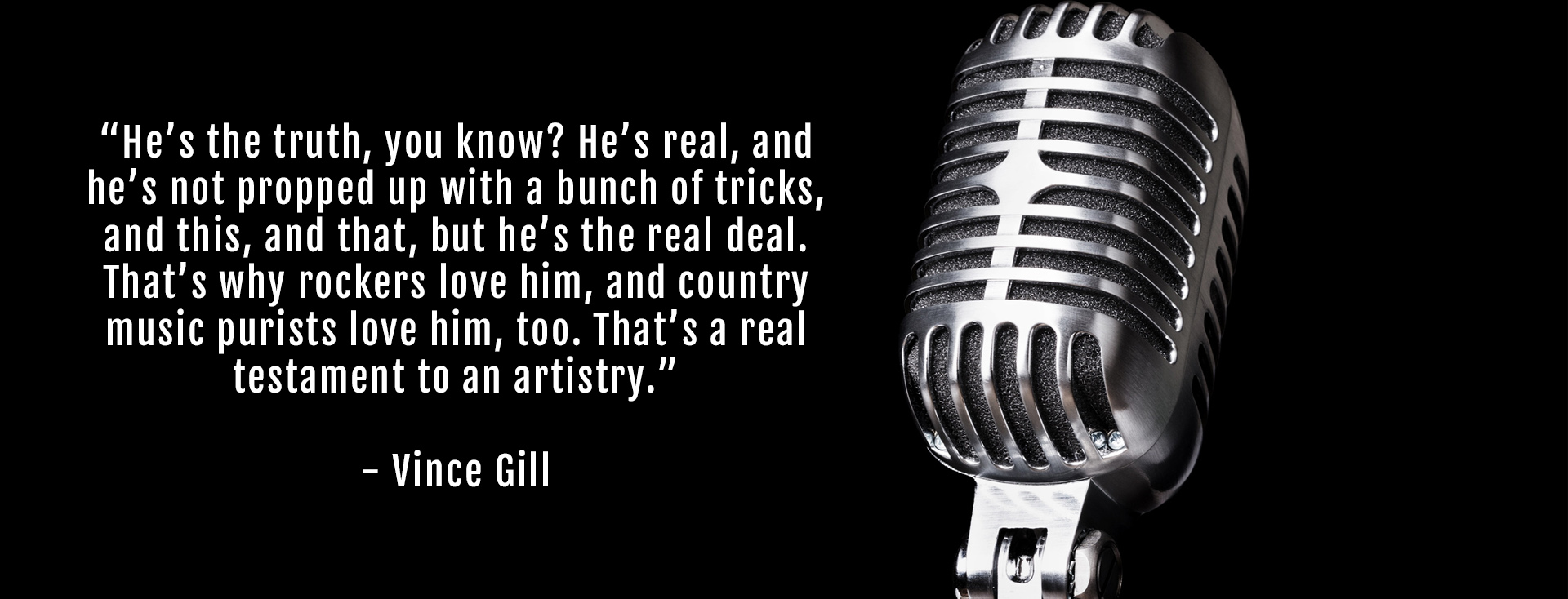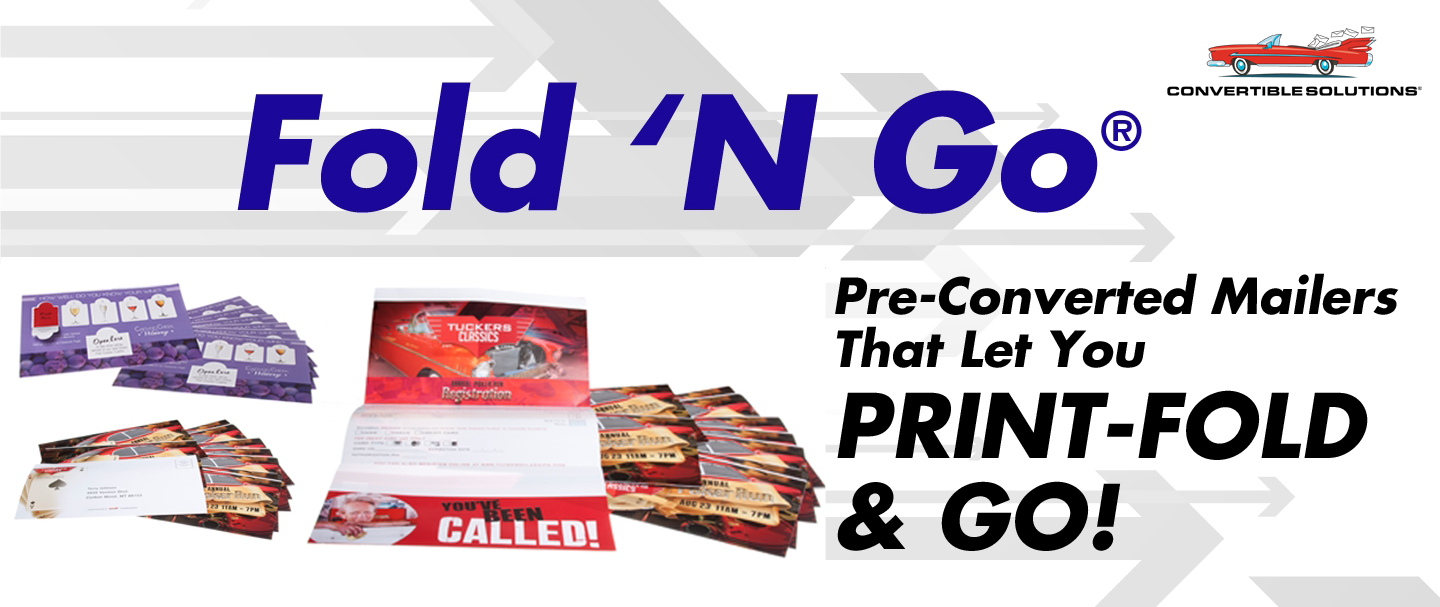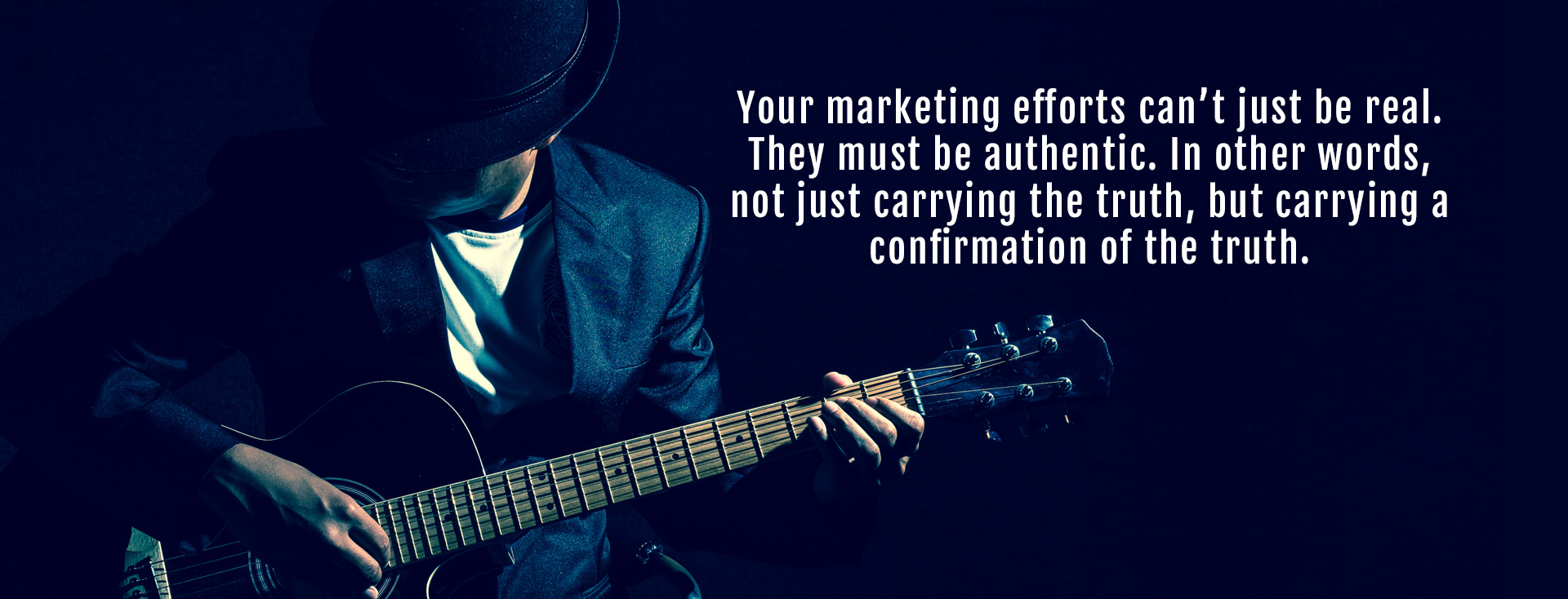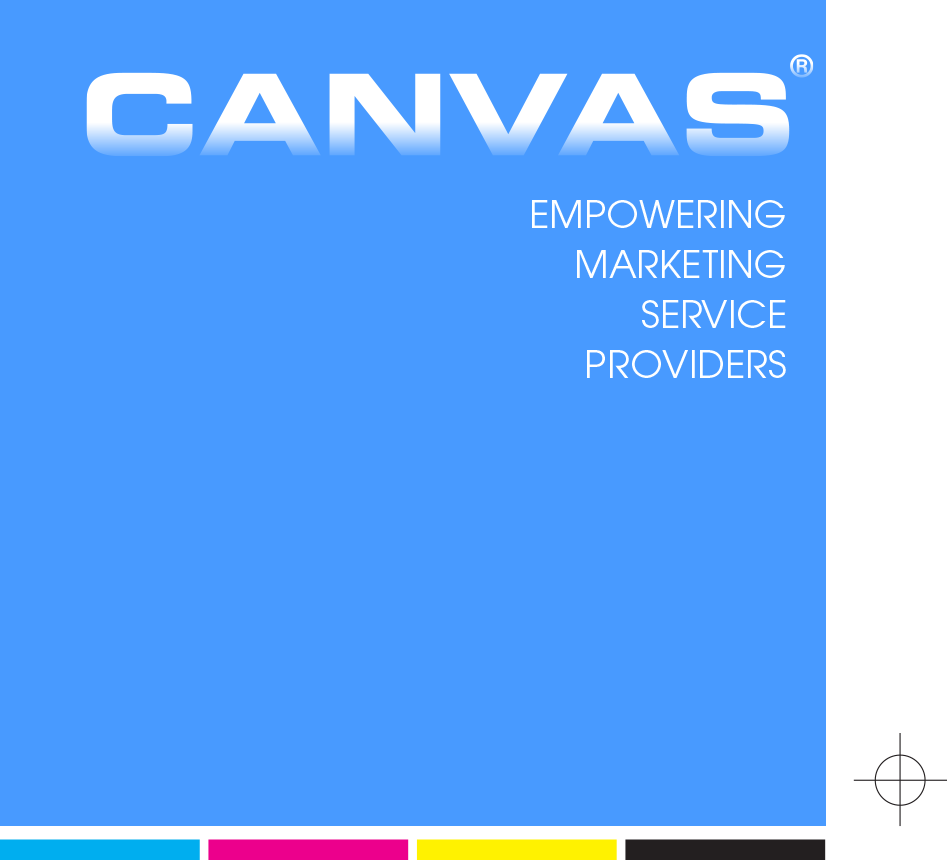“He (Cash) developed Johnny Cash, and once you develop your own creature, you go your own way.”
– Merle Kilgore
It’s the brand that keeps on giving. Johnny Cash is as relevant today as he has ever been. From his look, to his voice, to how he opened his shows, the Man in Black was an entertainer without peer.
So what made Johnny Cash so successful? How can you apply what he did to help you develop and deliver compelling marketing messages?
Here’s a hint – Johnny Cash was not just different, he was groundbreaking. Nobody else before or after sounded anything remotely like him. Of all the voices in modern music history, how many can you name with that one-of a-kind quality?
It took something beyond just being different – it took something unique. Something that was absolutely one of a kind. Something that no one else could ever replicate.
Cash drew his style from his personal perspective, his unique education and the life experiences that he had. In the liner notes to album “The Essential Johnny Cash,” Bono, lead singer of the Irish rock band U2, called Cash “the most male voice in Christendom.
Here are some of the qualities that you can add to your next marketing strategy session:

Not just real, but authentic
On an episode of CMT network’s show “Inside Fame,” Country Music Hall of Famer Vince Gill said of Cash:
“He’s the truth, you know? He’s real, and he’s not propped up with a bunch of tricks, and this, and that, but he’s the real deal. That’s why rockers love him, and country music purists love him, too. That’s a real testament to an artistry.”
As an artist, Cash wrote and recorded songs with some of the greatest hooks in music – hooks that all had elements of real life to which people could easily relate:
“I’d let that lonesome whistle/Blow my blues away”
“Because you’re mine/I walk the line”
“Don’t take your guns to town”
These were songs about real things happening to real people.

Not just sympathy, but empathy
Empathy is the ability to actually experience the feelings of another person. It goes beyond sympathy, which is caring for and understanding the suffering of others. And empathy is the personal emotion Cash captured and delivered in almost every song he sang.
As performers get older, they tend to take more and more vocal shortcuts. Even when their voices are still strong, they sometimes seem to be in a hurry to get home, thereby lessening their abilities to deliver emotion – the essential key to all music.
But no matter whether Cash performed a song in concert, on TV, or in the studio, you will hear almost exactly the same melodic delivery of the lyrics, as if he were singing the song for the first time. The audience size might have varied, the band may have grown larger, the tempo may have been quicker, and his health may have been poorer, but his vocal and lyrical delivery was comfortingly consistent.
Cash regularly took steps to make sure the emotional transfer was delivered when the melody of music alone wouldn’t do it. He’d raise or lower the strength of his voice, raise or lower the song’s key, or speak or even shout the lyrics, if that’s what it took to get his point across.
One of his biggest cover songs, the penultimate hit “Hurt,” which has been called “…a stunning blend of virtuosity and vulnerability,” showcases Cash at his best – gritty, unfiltered and totally himself.
Coupled with the virtue of his authenticity, that vulnerability allowed Cash to let others know just how well he could relate to them: He felt what they felt.

What does this mean for you?
Like Cash, your marketing efforts can’t just be different. They must be unique. With so many marketing stimuli flooding the lives of consumers, your brand must stand out not only in ways that are distinctive, but also in ways that nobody else can copy. This will serve as one of the best insulators from competition that your product (relatively common though it may be) could ever have.
Take the Coca-Cola bottle, for example. The bottle’s shape was intentionally created in 1916 to protect the brand from other look-alike bottled sodas. While virtually every beverage comes in a bottle or can, only the Coca-Cola bottle has the famous wavy contours that the company also transfers to its canned product in the form of a white, wavy line.
Also like Cash, your marketing efforts can’t just be real. They must be authentic. According to Dictionary.com, the term means, “having the origin supported by unquestionable evidence; verified.” In other words, not just carrying the truth, but carrying a confirmation of the truth.
“Authentic” is a word that helped advance Nike to its early stages of marketing success. With it, Nike could tell its story of its design heritage from University of Oregon track coach Bill Bowerman, who constructively altered the shoes of his track athletes (including Nike founder and chairman Phil Knight) for better performance.
In fact, in some form, Nike’s packaging and labeling commonly includes the phrase, “Engineered to the exact specifications of championship athletes,” which underscores Nike’s athlete-driven culture, indisputably proven for more than 40 years.
Finally, like Cash, your marketing must transmit empathy. Admittedly, this is a major challenge for most brands, because it exists as a higher-order thinking skill achieved by few people, and probably far fewer brands.
In fact, in an effort to be all things to all people, most brands now mean very little to anyone. But brands can indeed be empathetic. For proof, look at Harley-Davidson. Other motorcycle brands indeed exist – many more flashy, faster, and fleeter than Harleys.
But those motorcycles are cycles made by motor companies. Only Harley has that by-bikers, for-bikers feel that can spawn not only product extensions, but also an entire lifestyle.
The 2005 movie about Johnny Cash’s life, “Walk The Line,” features a tense, dramatic scene in a Memphis, Tenn., recording studio with a then-undiscovered Cash and Sun Records owner Sam Phillips. Although the scene never actually happened, the Phillips character delivers a great piece of wisdom to the Cash character that can be directly applied to marketing philosophy.
After finally convincing Phillips to give him an audition, Cash muddles through a gospel number that fails to impress Phillips. Before dismissing Cash, Phillips gives him an ultimatum:
“If you was hit by a truck and you was lying out there in that gutter dying, and you had time to sing one song. One song that people would remember before you’re dirt. One song that would let God know what you felt about your time here on Earth. One song that would sum you up. You tellin’ me that’s the song you’d sing? Or would you sing somethin’ different? Somethin’ real? Somethin’ you felt? ‘Cause I’m telling you right now, that’s the kind of song people want to hear. That’s the kind of song that truly saves people. It ain’t got nothin’ to do with believin’ in God, Mr. Cash. It has to do with believin’ in yourself.”
From there, Cash’s unique, authentic baritone/bass voice blows Phillips away with a rough-but-revealing, empathetic version of “Folsom Prison Blues,” a song that later launched a career that culminated with him as one of only two people inducted into both the Country Music Hall of Fame and the Rock-n-Roll Hall of Fame (Elvis Presley is the other).
Like Cash, carve your own path by being more than different; be unique, be more than real; be authentic and be more than sympathetic; be empathetic.
Benjamin D. Goss, Ed.D., serves as an associate professor in Stetson University’s sport business program in the Department of Marketing.
Colby B. Jubenville, Ph.D., is an author, international speaker, professor, entrepreneur, inventor and consultant. He holds an academic appointment at Middle Tennessee State University and is a senior consultant with Brentwood, Tenn.- based Brent Consulting Group.

